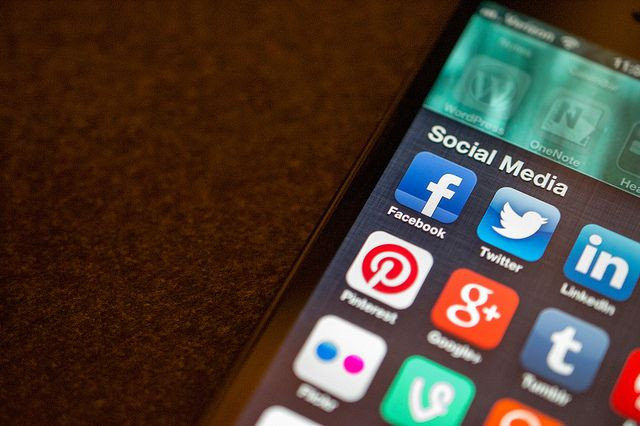Social Media And Sleep: Spending More Time Online Puts You At Hgher Risk Of Sleep Disturbance, Study Finds

More than two-thirds of adults in the United States own a smartphone, and many spend their days and nights checking their feeds on sites like Facebook, Twitter, and Tumblr. As experts continue to warn about the effects of smartphone use before bedtime, a new study shows how social media use in particular can have an effect on sleep.
The study, published in Preventive Medicine , comes from the University of Pittsburgh School of Medicine. Led by Dr. Jessica C. Levenson, a postdoctoral researcher in Pitt's Department of Psychiatry, the study intended to find out if young adults who frequently check their social media feeds during the day and throughout the week are more likely to experience sleep problems. The researchers found the average daily time spent on social media was about 61 minutes, with about 30 visits to the various platforms each week.
"This is one of the first pieces of evidence that social media use really can impact your sleep," Levenson said in a press release, "and it uniquely examines the association between social media use and sleep among young adults who are, arguably, the first generation to grow up with social media."
For the study, Levenson and her colleagues collected data on overall social media use among 1,788 adults aged 19 to 32. Participants reported how often they used social media in minutes per day, and then split into one of four categories: 0 to 30 minutes per day, 31 to 60 minutes per day, 61 to 120 minutes per day, and 121 minutes or more per day. They also told researchers how often they checked their feeds over the course of the week. Social media included Facebook, YouTube, Twitter, Google Plus, Instagram, Snapchat, Reddit, Tumblr, Pinterest, Vine, and LinkedIn. And their responses were anywhere within a seven-point range, from “I don't use this platform” to “three to six days a week” to “five or more times a day.”
Next, the researchers calculated the amount of sleep participants were getting by using the Patient-Reported Outcomes Measurement Information System (PROMIS) Sleep Disturbance measure. This assessed participants' problems sleeping, difficulty falling asleep, whether sleep was refreshing, and sleep quality over the past seven days. They then sorted the participants into three groups: high, medium, and low sleep disturbance. Nearly 43 percent of participants made it into the low-disturbance group, while 28 percent fell into the medium-disturbance group and 29.4 percent were in the high-disturbance group.
Levenson found “frequency of social media visits is a better predictor of sleep difficulty than overall time spent on social media.” Participants who visited social media throughout the week were three times more likely to have troubled sleep than those who checked their feeds less frequently. Meanwhile, those who spent the most time each day on social media were twice as likely to have problems sleeping than those who spent less time online. In addition, women were more likely to have disrupted sleep, along with those who earned lower incomes.
Presented with these results, Levenson said effective interventions might work to counter obsessive “checking behavior.” Her team also recommended physicians ask patients about their social media use if they complain about lack of sleep.
On average, adults need about seven to nine hours of quality sleep each night, but research shows many people get less than seven. A side effect of checking our phones all the time is that they bombard us with blue light. While it’s healthy during the day, blue light blocks the production of melatonin, a hormone that helps us sleep at night. Staring at our phones before we go to sleep is therefore counterproductive to sleeping. So if you find it hard to get shuteye, signing off of Twitter and Facebook may be the key to regaining those precious hours.
Source: Levenson J, Shensa A, Sidani J, Colditz J, Primack B. The association between social media use and sleep disturbance among young adults. Preventive Medicine. 2016.



























